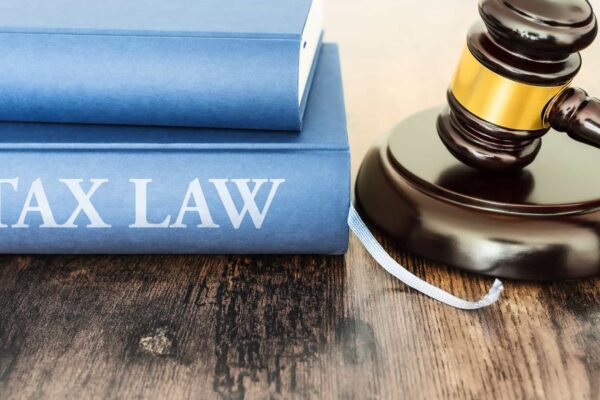Common Types of Investment & Securities Fraud
With the technological advancement and roll out of internet and electronic remote messaging came along new fraudulent scams and investment frauds different from traditional schemes. Thanks to mobile and online applications as well as social media platforms fraudsters have ever since been using these methods to lure people looking into legitimate investment income into fraud.
Due to the ongoing COVID-19, people are spending more time online and on social media platforms, and as a result we have seen an increase in the number of people who fell victim of investment or securities frauds. One of the traditional frauds that has been revolutionised by technologies is the boiler room fraud.
What is a Boiler Room Fraud?
A boiler room fraud is a common securities fraud in which the fraudsters purports to operate as a licensed securities or futures broker firm (kindly note that, in practice, boiler room fraud can also be applied to foreign exchange or commodity trading).
These firms offer the general public to trade in securities or futures by using their website or apps. These online platforms or applications are fake in the sense that the securities or futures contracts concluded are not executed on any recognised exchange or the exchange is worthless. As you may be aware, boiler room fraud is traditionally done through emails and cold calls.
Quick Guide to Recognise a Boiler Room Fraud
In general, a boiler room fraud can be indicated by one and/or many of the following characteristics:
- Receiving calls or emails from an unfamiliar source;
- Being asked to keep all communications confidential;
- Being pressured into an immediate decision;
- The promise of a guaranteed win/big return;
- The caller has a prestigious job title;
- The caller is based abroad;
- Being asked to pay upfront;
- Being asked for bank details; and
- Being provided ‘insider knowledge’.
One example of common sign of fraud is if the fraudulent trading broker or platform notifies the account holder, the victim, that in order to withdraw the profits accrued due to the successful trading, it is needed to pay local profits tax first. As the supposed profits are subject to local jurisdiction taxes as demanded by the local tax authority, the scammer requests immediate payment of the alleged tax to release the funds.
Investment & Securities Fraud Prevention
Now that you are aware of the characteristics of boiler room fraud, the best method is obviously to safeguard your money and interests and to remain vigilant and avoid these investment frauds in the first place, by taking the following actions:
- Ask yourself the question why a stranger you just met online/through social media platform is eager to ask/invite you to invest/trade through a particular overseas trading broker or platform.
- Ask yourself the question why do you want to trade through an overseas trading broker/platform suggested by a stranger instead of trading through a broker or platform located in your home jurisdiction.
- In the case of where the subject trading broker/platform is based in Hong Kong, kindly note that, in general, all the trading brokers/platforms are required to be registered and licensed by the local securities and exchange regulator. As such, by carrying out a general search of the subject trading broker/platform in the local public register, you may be able to determine whether it is a fraudulent company.
Funds Recovery After the Fraud
In the event that you are unfortunate and fell victim to investment fraud you can take the following actions to safeguard your interests and to potentially recover some of your losses:
- Inform your bank and do a local police filing;
- More importantly, do a police filing in the overseas jurisdiction where the bank account(s) and/or fraudulent company(ies) is (are) based;
- Inform the bank in the overseas jurisdiction, where the relevant bank account(s) of the fraudulent company(ies) is (are) based; and
- In the case where the fraudulent company(ies) is (are) based in Hong Kong, do a Hong Kong Securities and Futures Commission (“SFC”) reporting. Analogous reporting can be filed in other jurisdictions with the local regulator.
Taking one or all of the above mentioned actions will hopefully result into the temporary freezing of the fraudsters’ bank account(s), although in order to retrieve the funds back into one’s account, some local court actions are still required.
For example, in December 2018, the Hong Kong Court of First Instance has granted orders sought by the SFC against boiler room securities fraud offenders to compensate the investors who fell victim of the scams following legal proceedings. As the SFC was involved at the earlier stage, the SFC was able to obtain interim injunctions to freeze the monies held in the fraudsters’ bank accounts. Accordingly, the compensation was distributed to the victims from the frozen bank accounts.
Main Takeaways
Nowadays, fraudulent/scam activities take place more frequently than we are actually aware of these securities frauds. In order to avoid becoming a victim of the fraud and scam, you need to be vigilant of email fraud and hacking and stay alert when it comes to any investment or trading platform.
There is no harm to ask more questions from the start rather than regretting later. In the event you fell victim, do not panic, remain calm and take necessary actions to mitigate and recoup your losses. If necessary, do not feel ashamed to contact professionals for help.






